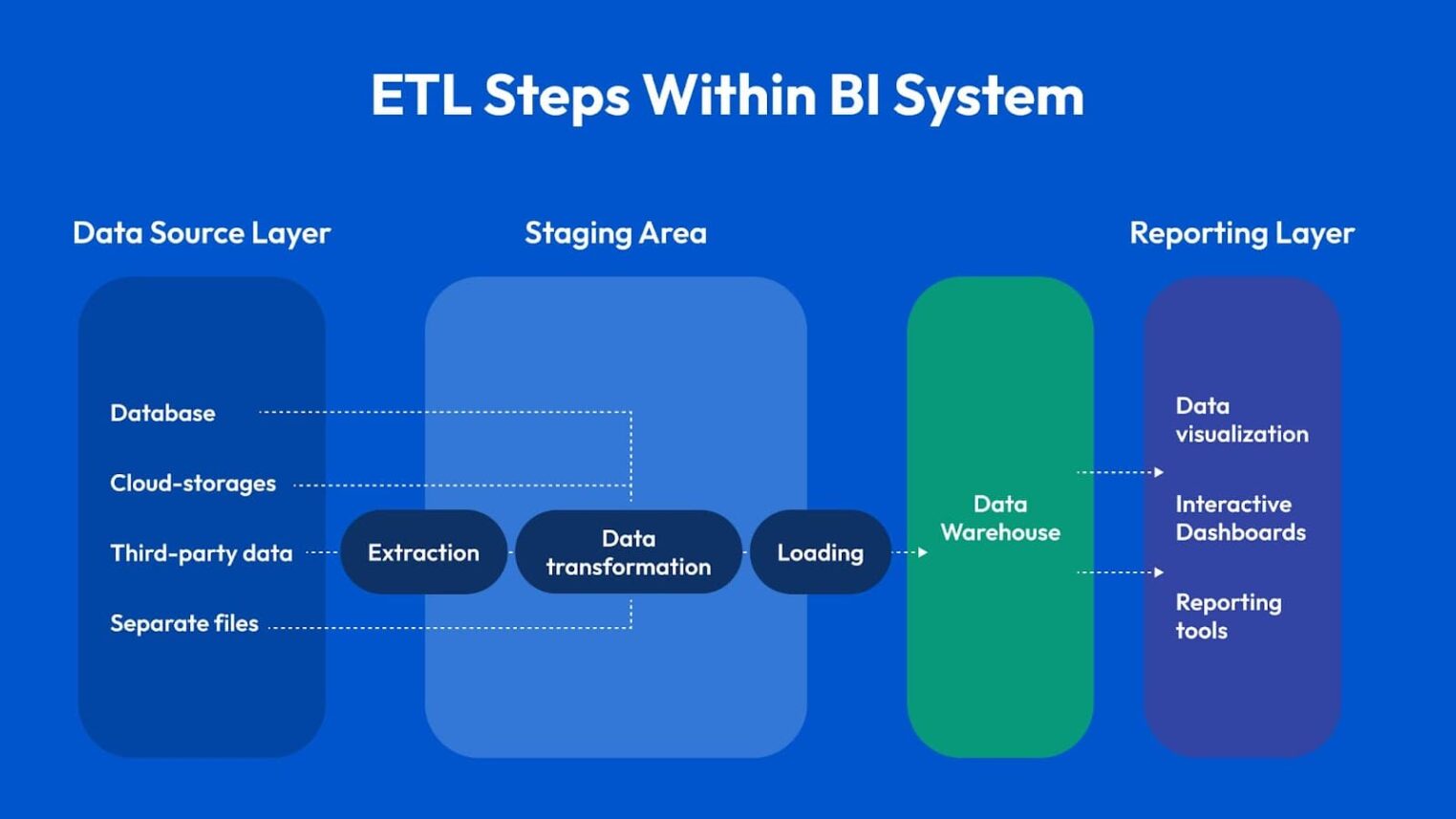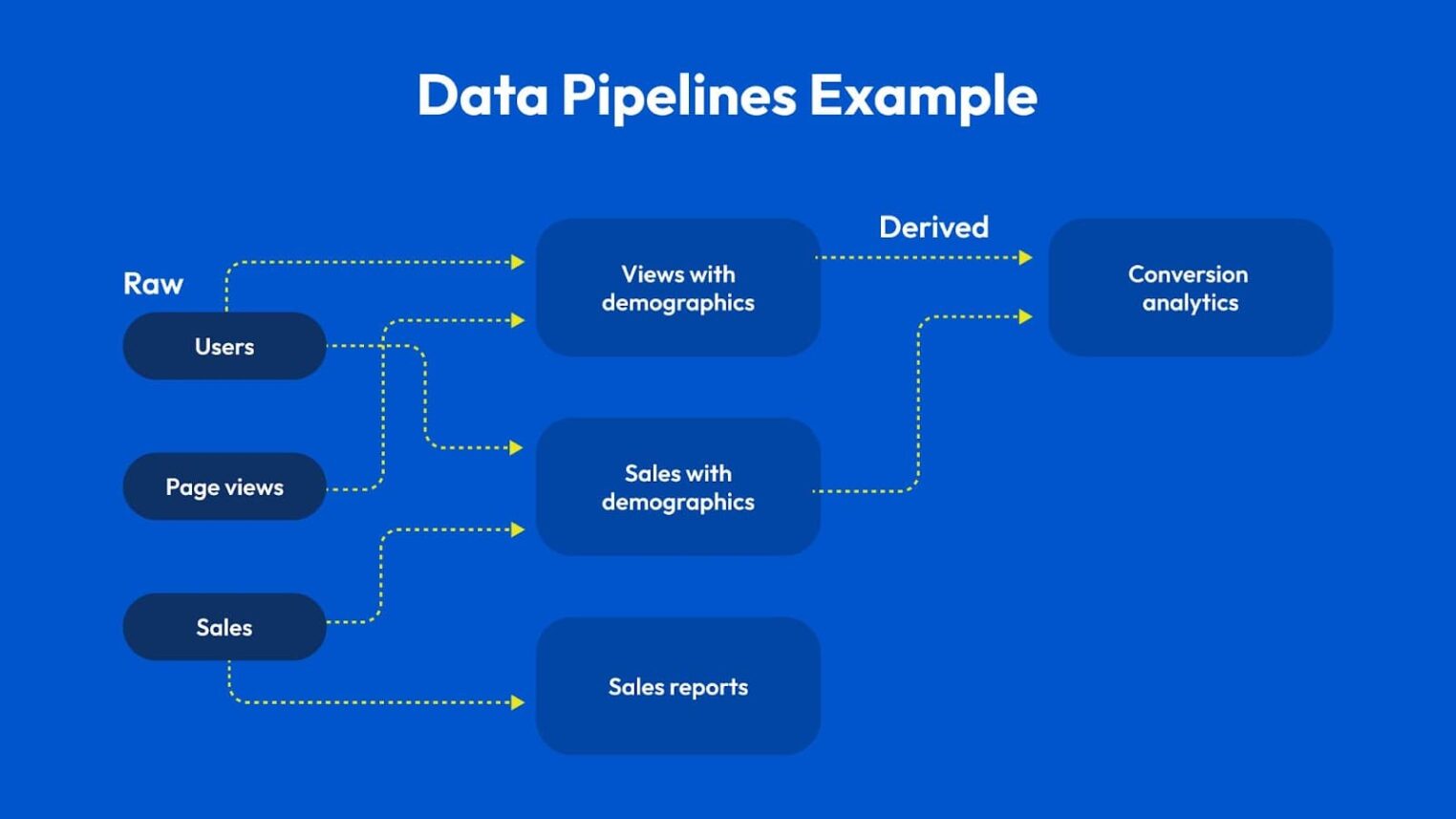Businesses today deal with immense amounts of data, so ETL (Extract, Transform, Load) developers have become integral members of most software teams. This article will examine their roles and responsibilities and tell you when to turn to an ETL specialist.
Who is the ETL Developer
ETL developers are specialists who construct and maintain data processing pipelines in various organizations. They extract, transform, and load data from all the company’s databases.
The extraction phase involves gathering all the necessary information from different sources and organizing it before proceeding to the next step.
The transforming phase is standardizing data formats to ensure compatibility with other organizations’ datasets and any external systems requiring access to this information.
Finally, in the loading phase, ETL specialists use their knowledge of APIs and data warehouse operations to make sure that new or updated data is correctly processed for storage or further processing by other apps.

Thus, ETL software developer partnership is becoming an increasingly critical component of a successful technology organization’s IT operations, allowing companies to make data-driven decisions about allocating their resources.
Responsibilities of ETL Developers
The primary responsibility of an ETL developer is to conceptualize and construct a data warehouse. This entails comprehending the company’s objectives and requirements ensuring that all essential information is systematically stored in the database. To guarantee precise data analysis outcomes, the ETL developer must assess the database’s storage requirements, validating the accuracy of all stored data and structuring it into well-defined categories.
Another key part of an ETL developer’s job is ensuring a ‘clean’ transition of data so that it’s usable in reports or other business intelligence programs. Testing and debugging should also be conducted on extracted Data to ensure it accurately reflects reality. An eye for detail is essential to avoid mistakes and improve performance. Finally, successful ETL developers should also possess a fair amount of integration knowledge, which helps them bring different components together seamlessly.

ETL Developer Skills
The role of an ETL developer encompasses a fusion of software development and database engineering, demanding a robust skill set for optimal performance. Beyond proficiency in scripting languages like Python and SQL, a deep comprehension of data flow diagrams and the ETL process is essential. Additionally, the ability to navigate intricate data pipelines, construct complex processing loops, and effectively translate business requirements into technical solutions is imperative. Successful ETL developers also utilize advanced tools such as Apache, Hadoop, or Spark to enhance their capabilities.
An additional skill set comprises superb communication abilities to contextually explain technical solutions to non-technical stakeholders, including decision-makers, department heads, and end users – ultimately justifying the chosen approach vs any alternatives. With team-leading capabilities, working with IT support teams and implementing best practices into software development processes will help make an ETL professional stand out.
When Does a Company Need an ETL Developer?
In the dynamic landscape of modern business, the role of an ETL (Extract, Transform, Load) Developer becomes indispensable when an organization encounters specific challenges and opportunities in its data management journey. Here, we delve into the nuanced scenarios and distinctive circumstances that signify a company’s need for an ETL Developer:
Data Integration Challenges: When dealing with diverse data sources that require harmonization.
Large-Scale Data Management: As data volume and velocity increase, necessitate efficient handling and processing.
Business Intelligence Initiatives: During the implementation of business intelligence and analytics projects.
System Upgrades or Migrations: When transitioning data from legacy systems to new platforms.
Real-time Data Processing Needs: For scenarios where timely data updates are crucial for business operations.
Data Quality Concerns: When inconsistencies or inaccuracies impact decision-making processes.
Customized Reporting Requirements: When standard reporting solutions don’t meet unique business reporting needs.
Increased IT Workload: In cases of a surge in IT workload related to data management tasks.
In essence, a company needs an ETL Developer when it faces challenges related to its data’s complexity, volume, and quality and when strategic initiatives demand a sophisticated approach to data processing and analytics. The presence of an ETL Developer becomes a strategic asset in navigating the intricate terrain of contemporary data management.
Wrapping Things Up
In conclusion, the role of an ETL developer is central and highly coveted in data engineering. Their importance is underscored by their ability to construct extensive data processing systems with intricate data flows, adeptly navigating the complexities of diverse data sources. As a result, their technical expertise in streamlining complex processes positions them as highly valued assets in modern business environments.




